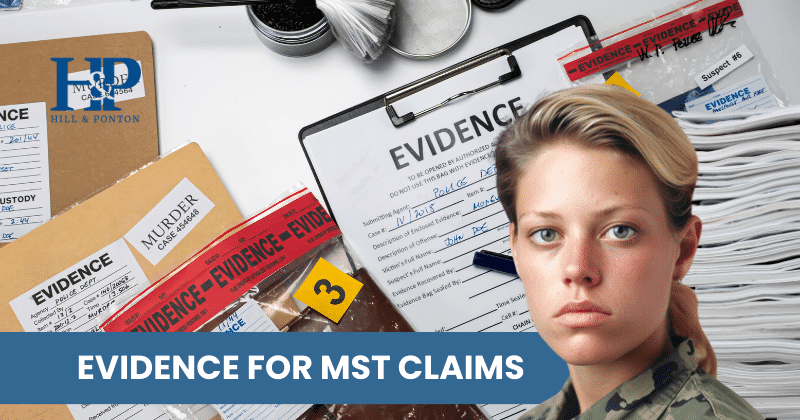A topic that is rather difficult to discuss is military sexual trauma. Some veterans may have experienced sexual trauma while serving in the military. Veterans who have experienced this, often have issues concerning their mental and physical health. Most times, the effects of this unfortunate experience can last several years after leaving the service.
A very important component to understand is how the VA defines Military Sexual Trauma. MST is defined by the VA as a “personal assault.” Personal assault, according to the VA, can also encompass domestic battery, stalking, and harassment.
Now that MST has been defined, the most common question regarding VA compensation for MST is: Are veterans granted compensation for MST? The answer is no. Veterans are not granted compensation for the traumatic event itself but can be granted disability compensation for the condition(s) that result from the MST. There are a number of mental health conditions that can result from MST. One of the most common conditions resulting from MST can be posttraumatic stress disorder or PTSD.
The National Center for PTSD defines PTSD as a mental health problem that some people develop after experiencing or witnessing a life-threatening event, like combat, a natural disaster, a car accident, or sexual assault. Veterans who are looking to receive disability compensation need to provide evidence to prove that they have a diagnosis of a mental health condition, that is due to the MST.
Next, veterans who are looking for disability compensation after MST need to prove evidence to support their VA MST claim. Many times MST in service goes unreported. This may prevent a veteran from trying to prove that this event occurred.
For this reason, for claims involving PTSD resulting from MST, the VA looks for the following signs, events or circumstances that can provide evidentiary proof to show that the MST event actually occurred:
- Records from:
- Law enforcement authorities
- Rape crisis centers
- Mental health counseling centers, hospitals, or physicians
- Pregnancy tests or tests for sexually transmitted diseases
- Statements from family members, roommates, fellow service members, or counselors
- Records that document the veteran’s requests to transfer to another military duty station
- Records that document decreases in work performance
- Substance abuse
- Episodes of depression, panic, attacks, or anxiety without an identifiable cause
- Unexplained social behavioral changes
- Relationship issues, such as divorce
One of the most important pieces of evidence that can be provided to the VA to help support a claim for PTSD resulting from MST is medical treatment which verifies that there is a mental health condition that is due to MST.
The good news is that the VA provides free health care for physical and mental health conditions related to experiences of MST. No documentation of the MST experiences or disability compensation rating is required in order to establish treatment. Some veterans may be able to receive this free MST related health care even if they are not eligible to receive other health care from the VA.
The take away is that veterans pursuing service connection for military sexual trauma sometimes have an uphill battle; however, these claims can be won, with the proper development.



